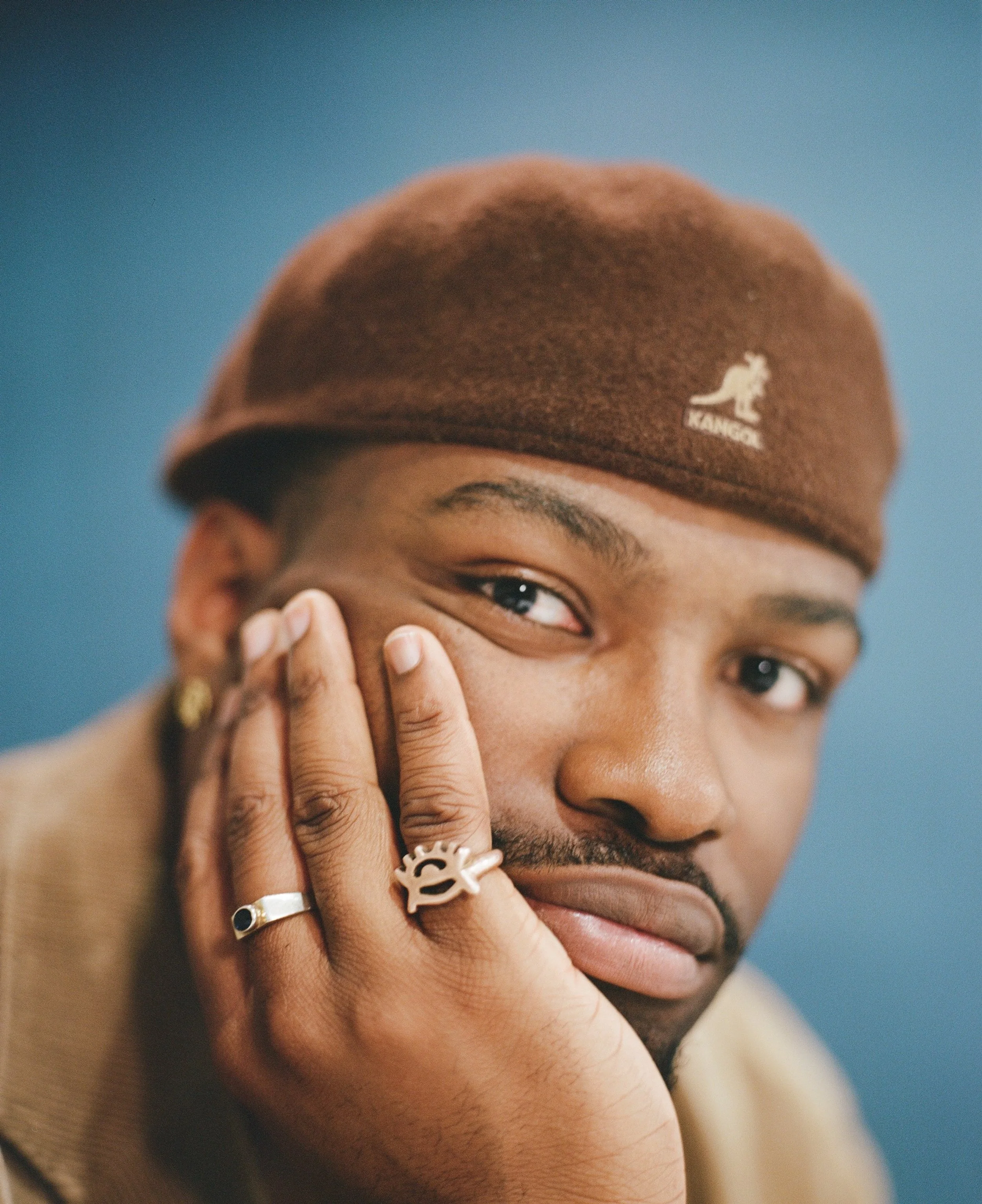Resident Prune: Noah daCosta
ON CONVERSATION, CREATIVITY AND CONNECTION
At Sense Of Self, we deeply value cultivating conversations about creativity, culture and community. Noah daCosta is a cross-disciplinary artist who champions these in his everyday: a cultural communicator, podcaster, video-maker, poet and professional ‘yapper’. We sat down to chat creative process, the Melbourne arts community and the significance of authenticity and vulnerability in artistic expression.
Q. Hi Noah, tell us a little bit about your creativity - what avenues and mediums do you gravitate to?
Anything to do with words, music and media. In terms of how it has manifested the last few years, it’s been mostly through conversation, interviewing and a little bit of filmmaking. Poetry as well, making music, but it's connecting with people through conversations being at the root of it all.
Q. Rather than being dedicated to one form, you have many artistic interests - why do you think that is?
The things that I'm a master of, I would say, are conversation, communication and anything to do with writing and poetry and everything like that. There are a few reasons why that could be, ADHD is one of them, but I think it’s also my experience. I moved around a lot as a kid.
I'm originally from the UK, I lived in America for a few years and now I live here. My dad is from Ghana, but he worked all over Europe. He's an animation professor by trade, but a musician as well. My mum is a massive fan of books and media, so I’ve always existed in an eclectic space. I've always had a somewhat delusional sense I could do it all. It could look like an event, a podcast or an interview. Or could look like radio or poetry.
I've been trying to dare myself to call myself an artist more, one of my missions for this year has been actually wearing that and not being scared of people's responses. I want to honour the artist in me, whether or not the world wants to call me that or not.
Q. How has the arts landscape of Melbourne shaped your artistic expression?
Melbourne's been massive in my creative journey. I was thirteen when I got here and I was in Forest Hill – not much going on over there. I was one of the few black kids in my school and when you’re a young kid you’re looking for your space. It was when I got out of high school, that I remember discovering the music scene and multicultures of Melbourne, and I started going to gigs. Kaiit had this single launch at The Gaso, which my sister and I went to and we were blown away. This was not the Melbourne that we had just spent the last five, six years in at that point.
The thing about Melbourne that I love is that basically everybody's relatively new here. Either they are first or second gen, their parents either came in and they were born here or they came here when they were young. And creatively, that's reflected. It gives a lot of room to find yourself and explore. People are down to collaborate, people are down to connect and if you're genuinely passionate about what you're doing, you care, you're gonna gravitate to people who are on to the same thing.
Q. Are there times you have felt overwhelmed or disconnected from your creativity, and if so, how have you navigated that? How do you break out of a funk?
When I look at the last few years, the biggest times I felt a disconnect is when I haven't finished something. When I’ve let things like perfectionism or self punishment get in the way. This year I've been in one of the most free creative flows in years. Being a tall black man, I think there are so many ways in which I've reduced myself, or made myself smaller, for fear of the world reacting negatively or being scared of me. I'd rather meet that trouble being myself than not. I'd rather live the consequences of being myself, at my fullest. Getting out of my own way has been a really big part of it. Better boundaries as well is something I'm still learning. I find that oftentimes if I'm in a funk, it’s because in some way I have not honoured a boundary of myself.
Journaling also helps - I'm very inconsistent, but I do write down my thoughts a lot. I always carry a little notebook with me. I also hate to say it, but man, fitness and exercise works. It's so annoying.
Q. What’s your relationship with bathing? How has the water - the ocean - the river - the rain - had an impact on your life?
Well, I can talk about the rain in England. But no, my morning shower is really important. I've always felt my best ideas come in the shower. I think there's something to be said about water and the proliferation of ideas and the mind.
I went on a hike at the start of the year and my friend and I hopped in the water. And that was my first time in years hopping in a river. It was wonderful. It just felt like it was kind of washing away any sense of being this ‘working professional’ and I was just this human in the water. The same way our ancestors would have done years ago.
Coming into this year, I realised how much I need to be in water more. When I last went to the Bathhouse not only did it feel quite natural, but I found that it was hard to think. I went in with the thought that I'm gonna think and reflect and so on, but I found I was going blank for big chunks of time when I was there, which I was trying to fight. My mind is running 100 miles a minute at any given point. And here I am, just being.
Q. Interviewing other artists and creating through conversation is something you are so good at — why do you think connecting in this way is important?
I’ve always been interested in the how and the why. When you hear some of the stories that are about creating something or contributing to someone becoming who they are, it opens your mind, educates, and inspires in its own right. On an artistic level, when you understand how easy or difficult it is to create something, it gives you a better sense of how to create yourself; it helps you understand yourself better. Whether you have an easy life or a very difficult, oppressive life, if you know where you sit within that, then it's easier to navigate.
Q. What do you think are the keys to conversations that create deeper connection and resonance?
Genuine curiosity and a degree of surrendering yourself. If I am more vulnerable, if I come into this with curiosity and my walls are down, there will be some sort of reciprocation. Surrendering also means keeping yourself out of the way. I'm still having to hold myself back. How much can happen if I sit back a little bit? Also openness to just being wrong, or being disagreed with. How can I engage with this person while staying true to my values, but also being curious?
Authenticity is, I think, the core of it.
Past Conversations
In Creative Conversation with James Whiting
In Creative Conversation with Allee Richards
In Creative Conversation with Maria Angelico
In Creative Conversation with Katherine Brabon


